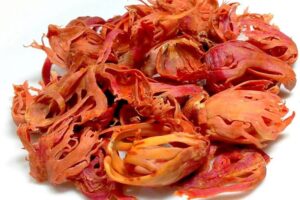Clove Trade: Kerala's Fragrant Treasure
Kerala, a land renowned for its spice cultivation, holds a prominent position in the production and export of high-quality cloves. Known for their intense aroma, rich flavor, and medicinal properties, cloves are a vital part of the region’s spice economy, contributing to Kerala’s identity as a global spice hub.
The Kerala Advantage
Kerala’s tropical climate, fertile soil, and high humidity create the perfect environment for clove cultivation. The Western Ghats, with their biodiversity and favorable conditions, allow for the growth of premium-grade cloves that are highly sought after in international markets. Kerala’s cloves are known for their deep brown color, oil content, and robust flavor, making them a preferred choice for culinary and medicinal applications worldwide.
Farmers in Kerala employ traditional, sustainable farming practices to ensure the highest quality yield, preserving the natural richness of the cloves while supporting environmental sustainability.
The Historical Significance of Cloves
Cloves have been integral to Kerala’s spice trade for centuries, with records of their export to ancient civilizations across Asia, Europe, and the Middle East. The spice was prized not only for its culinary uses but also for its medicinal and preservative properties, making it a highly valuable commodity along historic trade routes.
Global Demand and Export
Cloves are indispensable in the food and beverage industry, used to flavor dishes, confectionery, and beverages. They are also vital in pharmaceuticals, cosmetics, and aromatherapy, driving consistent global demand.
Kerala’s cloves are exported to regions like the Middle East, Southeast Asia, Europe, and North America. The rising trend of natural and organic products has further fueled the demand for Kerala’s sustainably sourced cloves, opening new avenues for exporters.
Health and Economic Benefits
Cloves are known for their numerous health benefits, including anti-inflammatory, antiseptic, and antioxidant properties. They are widely used to alleviate toothaches, improve digestion, and boost immunity. Clove oil is especially valued in traditional medicine for its ability to treat respiratory conditions and relieve pain.
Economically, clove cultivation provides livelihoods for many smallholder farmers in Kerala. The spice’s high market value ensures stable income, contributing to rural development and strengthening the local agricultural economy.
Sustainable and Ethical Practices
Kerala’s clove farmers are increasingly adopting organic farming practices to align with global sustainability trends. Techniques such as natural pest control, minimal use of chemical fertilizers, and water conservation are widely practiced, ensuring environmentally responsible cultivation.
Fair trade initiatives are also gaining traction, ensuring equitable compensation for farmers and promoting ethical practices in the spice trade. These efforts enhance the global appeal of Kerala’s cloves, attracting conscious consumers and premium buyers.
Trade Opportunities
Importers and exporters can tap into Kerala’s clove trade by sourcing directly from trusted producers and cooperatives. Kerala’s well-established spice trade infrastructure, combined with government support and export incentives, provides lucrative opportunities for businesses looking to expand their spice portfolio.
Kerala’s cloves, renowned for their unmatched quality, offer businesses a chance to stand out in the competitive global spice market.
Conclusion
Kerala’s cloves remain a fragrant testament to the state’s rich spice heritage. By investing in this valuable spice, traders can enhance their market share while supporting sustainable agricultural practices and local farming communities. As demand for high-quality, organically grown spices increases, Kerala’s clove trade is poised to thrive, securing its place in the international spice market for generations to come.




